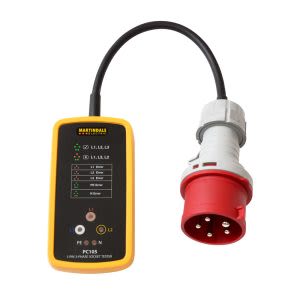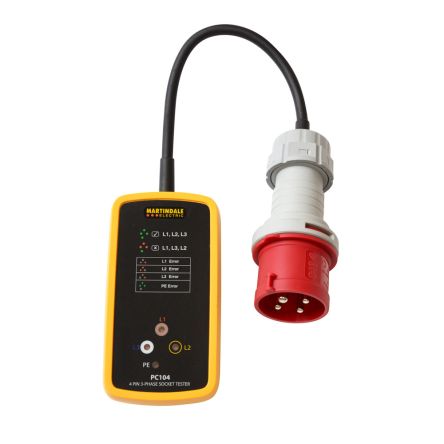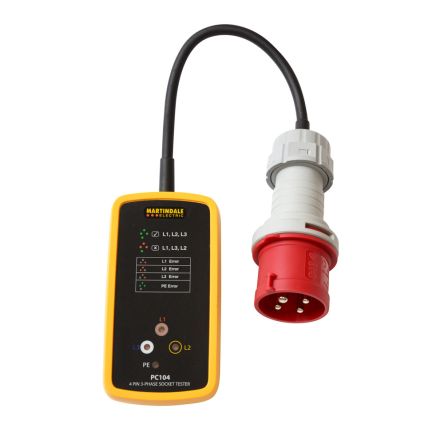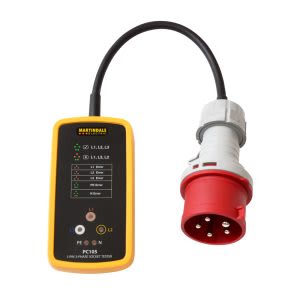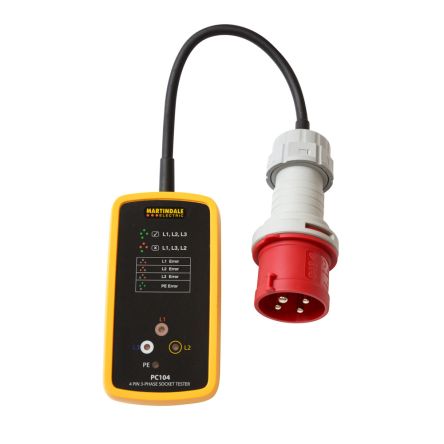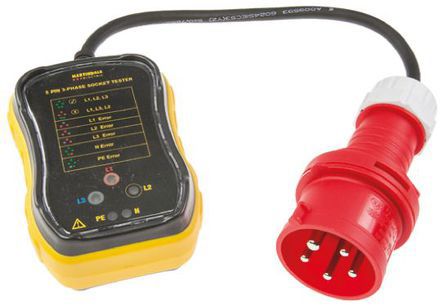- Automation & Control Gear
- Cables & Wires
- Enclosures & Server Racks
- Fuses & Circuit Breakers
- HVAC, Fans & Thermal Management
- Lighting
- Relays & Signal Conditioning
- Switches
- Batteries & Chargers
- Connectors
- Displays & Optoelectronics
- ESD Control, Cleanroom & PCB Prototyping
- Passive Components
- Power Supplies & Transformers
- Raspberry Pi, Arduino, ROCK, STEM Education & Development Tools
- Semiconductors
3 Phase Testers
A socket tester is a small, handheld device that is plugged into a socket to quickly confirm if an AC wall socket is working. Testers also identify if the socket is producing the power rating expected from a socket. You can find out more in our comprehensive socket testers guide.
Socket testers are used to ensure that the wiring is the correct and can detect if there is no earth, however, cannot check if the earth is in good condition if it is there.
The simple interface features lights on the front of the tester that will light up in different combinations, this will indicate if there is a fault and show the user exactly what the fault is.
Different types of socket testers:
Simple testers can detect a number of different faults but they cannot indicate or measure the earth fault loop impedance. They are normally the same size as a 13A plug.
Advanced testers have the same normal functions that a simple tester has including reversed line and earth, or reversed line and neutral. They display the range of numerical values that the earth fault loop impedance falls.
Professional testers have the same normal functions that a simple tester has, including the numerical value of earth loop impedance reading. They also are used to measure the values of earth loop impedance to certify or report on the installation that has been carried out.
Who would use a socket tester?
Electricians, maintenance personnel, DIY enthusiasts, handymen and equipment installers would generally have a mains socket tester in their toolbox to check the safety of the socket and prevent shocks and accidents from occurring.
